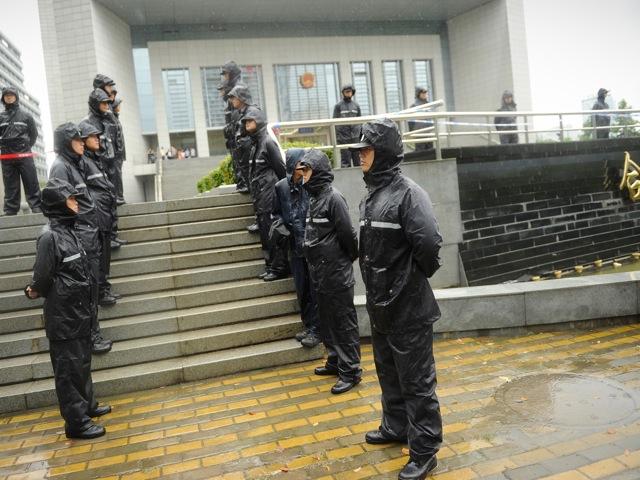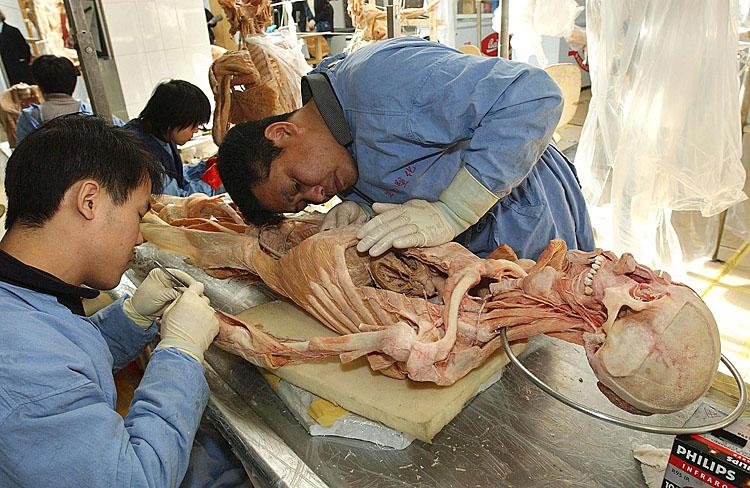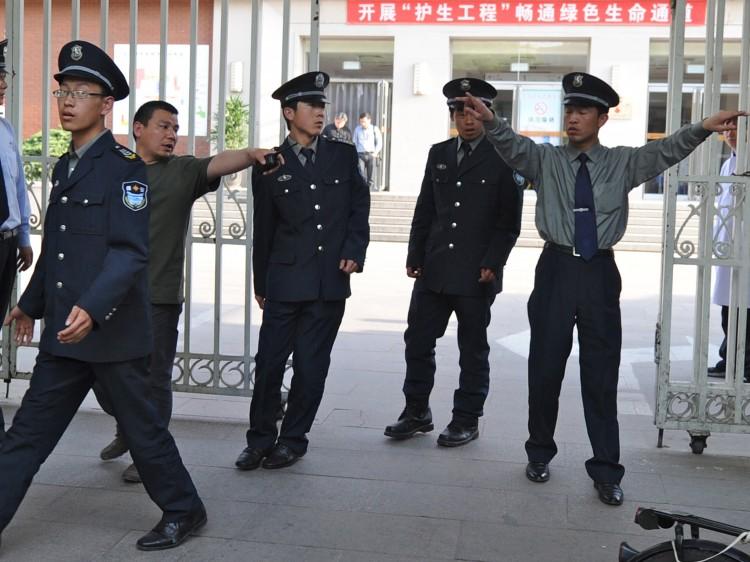
Policemen stand guard outside the Intermediate People's Court in Hefei City, Anhui Province, on Aug. 10. Gu Kailai was tried here for the murder of British businessman Neil Heywoord. Peter Parks/AFP/GettyImages
The trial of Chinese billionaire Gu Kailai for the murder of British businessman Neil Heywood has been a sort of show trial. The point of the drama has been to hide great criminality rather than to publicize it.


